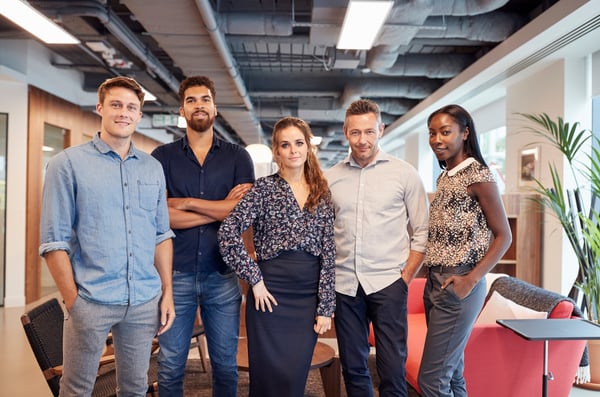The clothes you wear say a lot about who you are. In fact, your outfit is often the first impression you make on a person before ever speaking a word.
Choosing what to wear is a crucial step in preparing for an interview. It’s tricky to know how you should dress unless you do proper research into the company and its culture. Take the proper time to look into the business and its expectations or dress code.
You can discover a lot by searching through the company’s website and social media profiles, or by considering what may be standard for the industry. The most important thing is that you choose an outfit that makes you feel comfortable, confident, and showcases who you are.
For this guide I’ll cover both business professional and business casual outfit options for men and women, but the information in this guide can help you choose an outfit regardless of your gender or industry.
How to dress for an interview
Interview attire can be broken down into two main styles: business professional and business casual. Businesses like law firms or financial agencies lean more toward business professional, while a tech start-up or retail store could be fine with a business casual look. If you’re lucky, the company may use one of these terms when informing you about the interview. If not, use your best judgement based on your own research.
Business professional attire
In the corporate world, this is the clothing that most people will be accustomed to. The style is much more conservative and sticks to “safe” colors (blue, black, gray, white, and neutrals). Your clothes should be untattered and clean, and you should be well-groomed. It’s important to make sure that however you dress, you are comfortable in what you wear and you don’t spend the whole interview thinking about your outfit rather than the questions at hand.

Business professional for women
I’ll be blunt–I’m a man. Because I obviously can’t claim to be an authority on what business professional looks like for women, I sourced a few of my colleagues who are women in marketing and this is the advice they provided:
- Light colored shirt that is not distracting, combined with a cardigan or blazer
- Black/neutral pants or a skirt and tights
- Black/neutral shoes (either flats or heels, but close-toed)
- Natural looking makeup, clean/styled hair, and neat nails
- Tasteful knee-length dress
- If wearing a watch or jewelry, it should be nice and not overdone
Business professional for men
Business professional for men adheres to a similar conservative and professional code. Keep it tasteful and comfortable in addition to staying clean and well-groomed.
- Light colored dress shirt under a blazer or suit jacket
- Complimentary tie without a loud or distracting pattern
- Neat, pressed slacks, khakis, or chinos
- Black/neutral shoes with a matching belt
- Formal watch
Business casual attire
This dress code is favored among tech companies and startups for its cool and youthful appeal. It’s generally considered less stuffy and more progressive, allowing for more color and clothing options. Still, it’s important to maintain good grooming and simple styles.

Business casual for women
In general stick to clothes that highlight your personality, instead of distract from it. Here are some options for the ladies. These tips are again sourced from some of my colleagues who are women:
- Traditional, plaid, or patterned shirt
- Plain sweater
- Modest skirt, pants, or dark denim
- Optional cardigan or blazer
- Clean sneakers, simple flats, or heels
- Complimentary jewelry or watch
Business casual for men
Men also have more freedom when it comes to dressing business casual. Here are some options for men to dress business casual:
- Collared shirt (button down or polo) with short or long sleeves—typically untucked and without a tie
- Plain sweater or cardigan
- Dark dress jeans or fitted chinos
- Blazer over a plain T-shirt
- Dress sneakers, derby shoes, or fashion boots
What are you waiting for?
Getting the part requires that you look the part. Doing proper research and trying on a few outfits during your interview preparation will help you feel confident and comfortable when it’s time to make an impression. And be sure to send a thank you letter after your interview. You’ve got this!

 by Derek Doeing
by Derek Doeing
 by Derek Doeing
by Derek Doeing
 by Derek Doeing
by Derek Doeing